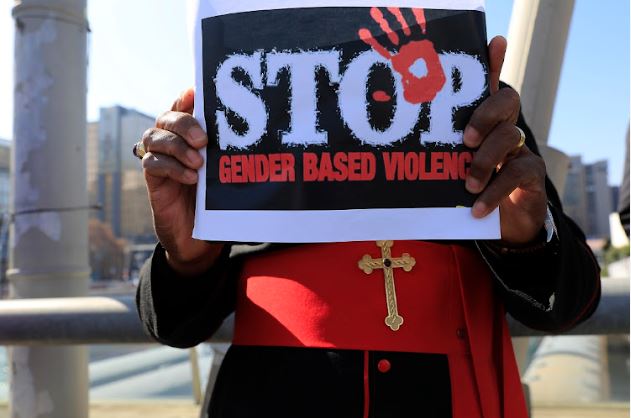Faith leaders have joined hands to wage a war against the scourge of Gender Based Violence and femicide in the country.
They have come under one umbrella, the Faith Action to End Gender-Based Violence (GBV) Collective. This they said has been months in the making and they unveiled the movement in Benoni, under the theme: “Interfaith Movement for Sustained ACTION to END Gender-Based Violence and Femicide.”
Gil Harper, the Campaign Communications Coordinator said it was a ground-breaking mobilisation campaign within the interfaith sector, serving as a day of commitment and a platform for shared learning and mutual support.
“The Joint Statement of Commitment and Signature Campaign, drawing faith representatives from Islam, Hinduism, Baha’i, African Traditional Religion, Judaism, Buddhism, Brahma Kumaris, and Christianity, marked a significant step in the fight against Gender-Based Violence and femicide,” she said.
“This diverse collective, representing critical structures from each faith, has united to support the government-initiated National Strategic Plan to end GBV and femicide, thereby contributing to a comprehensive and inclusive approach to this pressing issue. The unity prayer, led by Dr Fikile Vilakazi, Director of the Gender Equity Unit at the University of the Western Cape and Founder of the Ikhwelo Healers Collective, encapsulated the collective desire for change and healing.”
Harper added that her powerful words, “O my God! O my God! Verily, I invoke Thee and supplicate before Thy threshold,” called for divine support in uniting hearts and spirits against gender-based violence.
“Dr. Vilakazi’s message was clear: ‘We are wounded people; we need a revolution of love; let’s be the voice of that revolution.’ This declaration captured the essence of the collective’s mission. She highlighted the urgent need to address spiritual violence within the faith sector, specifically the abuse perpetrated by trainers (oGobela) against initiates, including instances where initiates have been raped in the name of their ancestors. Emphasising a vision for the future, she declared the possibility of a world free from Gender-Based Violence and femicide (GBVF), underscoring the collective’s commitment to making this vision a reality,” said Harper.
Daniela Gennrich, Coordinator of the We Will Speak Out South Africa (WWSOSA) Coalition’s Secretariat to the Faith Action Collective, spoke of a new beginning. Emphasising the gravity of the situation in South Africa, she stated, “The prevalence statistics of gender-based violence and femicide show that we are a country at war with ourselves.”
Gennrich emphasised, “This campaign isn’t just another fleeting trend; it’s about igniting a passion for real change.” She highlighted the stark reality of Gender-Based Violence in South Africa, noting, “We are a country at war with ourselves. Gender violence isn’t an external issue; our members are both survivors and perpetrators.”
She called on the faith community to respond.
“We must listen to the cries of survivors and learn together, fostering a community that heals, grows, and embodies our faith and love.”
Dr Nontando Hadebe, an African Feminist Theologian and the International Coordinator for Side by Side evoked a ‘Kairos Moment’ signifying ‘the right, critical, or opportune moment’ at the interfaith event, referencing the significant 1985 Kairos Document.
This document, crafted by black South African theologians from Soweto, was a pivotal theological response to the Apartheid regime. It embodied contextual and liberation theology, resonating globally in Latin America, Europe, Zimbabwe, India, and Palestine.
Dr. Hadebe emphasised the urgent need for action, drawing parallels with the Sankofa Bird to symbolise the retrieval of unity from the faith action against Apartheid.
“It is time to transform, dismantle, and replace,” acknowledging the ongoing journey towards gender justice. Her appeal for inclusivity extended to inviting men, who are not all perpetrators, and including the LGBTQ+ and disability sectors, reinforcing the commitment to a diverse and inclusive approach.
Prof. Fatima Seedat, Associate Professor and Head of the Department of African Feminist Studies at the University of Cape Town and Co-Director of the Centre for Contemporary Islam, emphasised the critical importance of addressing GBV with utmost seriousness in society.
She highlighted that effectively tackling GBV is unattainable if those working in the field, whether in the faith sector or more broadly, are required to do so voluntarily.
